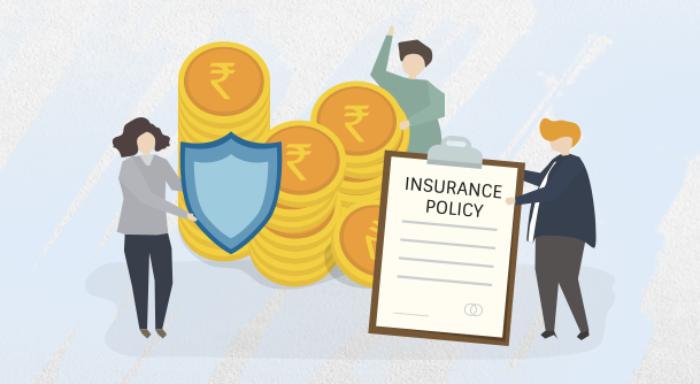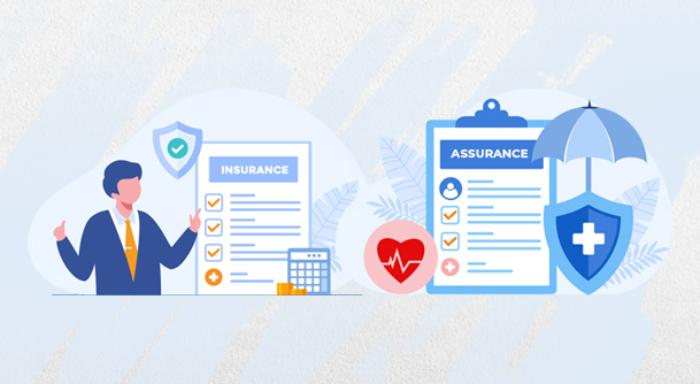Individual vs Group Insurance: What's Better? | Edelweiss Life
Blog Title
925 |
8/6/25 10:43 AM |
Imagine you’re settled into a steady job. Your HR tells you that you’re covered under the company’s group insurance plan, and you feel a sense of security. But is this coverage really enough? Should you still consider buying a separate individual life insurance or term insurance plan?
Relying only on group insurance can leave you vulnerable. It may not cover everything you need. There can be gaps in your financial protection. To make an informed decision, it’s important to understand the specifics of group health insurance. We will also understand its limitations and why individual insurance is still essential for you.
Meaning of Group Health Insurance
Firstly, you need to understand what group health insurance really is. In simple words, it is a policy that your employer provides to you (and sometimes your family) as part of your job benefits. Typically, it covers basic health-related costs like hospitalisation, surgeries, and sometimes even maternity benefits or doctor consultations.
Here are some key aspects of group health insurance:
- Lower Premiums: Group insurance is more affordable than individual plans. Here, your employer generally pays a significant percentage of the premium. Even if you do, it’s a small amount compared to market rates.
- Guaranteed Coverage: You are automatically covered without any medical tests. Thus, even people with existing health issues can use it.
- Immediate Benefits: Group plans typically offer coverage from day one
- Family Coverage: Many group plans extend benefits to immediate family members, including spouses and children.
Limitations of Group Health Insurance
Group insurance plans are helpful. Yet, they often come with a few limitations that many people overlook. This includes:
- Coverage Ends with Employment:
Most group plans offer a standard cover. For a young, single person, this might seem okay. But what if you have a family? Or what if a major medical emergency arises?
Additionally, if you leave your company or retire, the coverage ends immediately. This can leave you vulnerable during job transitions or retirement.
For example, if a critical illness strikes, your hospital bill runs up to ₹10 lakhs. If your group policy covers only ₹2 lakhs, then the remaining ₹8 lakhs will go from your pocket.
- Job-Dependency:
Group policies are tied to your employment. If you switch jobs, get laid off, or retire, the policy ends right there. Imagine losing your job and falling ill the next week. Not having a backup plan or insurance plan can be challenging.
- Limited Customisation:
Group policies are generic. They don’t consider your individual health needs, your family’s medical history, or your long-term goals. You can't customise them to suit your lifestyle or future plans.
- No or Limited Life Insurance:
Do not confuse health insurance with life insurance. Many group policies offer a small life cover. That amount isn’t enough to secure your family's financial needs if something unfortunate happens to you.
Why Does Individual Health Insurance Still Matter?
An individual insurance plan is your own personal safety net. May it be life insurance, term insurance, or health insurance. Unlike a group policy, it’s completely customised to your needs, follows you wherever you go, and grows with you.
Here’s what you get with an individual health insurance plan:
- Continuity of Coverage: Individual policies remain active regardless of job changes or retirement. This ensures uninterrupted protection.
- Customised Benefits: With an individual health insurance policy, you can choose the sum assured, the policy term, and the kind of coverage you want. You also decide who the nominee is and can add riders like critical illness, accidental death, etc., for extra protection.
- Higher Sum Insured: Individual plans often offer you higher coverage limits compared to group policies. This covers your expensive treatments or long-term hospitalisations.
- Family Protection: With individual plans, you can secure comprehensive coverage for ageing parents or children who may not be adequately covered under a group plan.
Combining Both for Better Results
Instead of choosing between group and individual insurance, combining both offers optimal protection. Treat your group policy as a bonus and supplement it with your individual insurance policy. That way, you're fully covered, both at work and outside of it.
Here’s how:
- Use your group insurance for minor or routine hospitalisations.
- Combine it with an individual policy for high-value claims like critical illnesses or long-term care.
- Also, have a term insurance plan in place for long-term family security.
- Add riders such as accidental death benefits or maternity cover to your individual plan based on life stage requirements.
Converting Group Policy to Individual Policy
If you’re leaving your job or retiring, you can convert your group policy into an individual policy. It’s called porting. Here’s why you should consider this:
- You don’t have to undergo fresh medical tests or risk rejection.
- You might get credit for the time you were part of the group plan. This can count toward the waiting period in your individual plan.
- You won't have to search for a new plan last minute or worry about policy lapses.
So, how can you convert? Follow these steps:
- Inform Your Insurer on Time:
Let your insurer know at least 45 days before your last working day. If you miss the deadline, you still have 5 days after leaving the job to inform them.
- Check Available Plans:
Compare and go through the individual health insurance plans your insurer offers. Look at the waiting periods, coverage, exclusions, and premium costs.
- Know the Rules:
As per IRDAI guidelines, your insurer must allow you to switch from group to individual cover. The waiting period (for pre-existing diseases) served under the group plan is carried over to the new plan.
- Submit Documents:
You’ll need to submit:
- A proposal form.
- A portability form.
- A copy of your resignation or retirement letter with the last working date (signed and stamped).
- Underwriting May Apply:
The insurer will review your application (this is called underwriting). They’ll decide if you're eligible for the individual plan. Additionally, they must give you an answer within 15 days of your request.
- Activate Your Policy:
Once approved, pay the premium and your individual policy gets activated. Later, you can even port to another insurer if you find a better plan.
Takeaway
Group insurance is great as an extra perk, but it is not as reliable as a life insurance plan. While group health insurance will provide valuable initial coverage at low costs, its limitations make it insufficient as a standalone solution.
That’s where individual health insurance bridges these gaps. It offers customisable benefits, higher coverage limits, and continuity beyond employment. Compare policies, read the fine print, and buy policies online from trusted providers.
Don’t wait for a job change, a health problem, or a financial challenge to get your own coverage. Start small if needed but start early.





